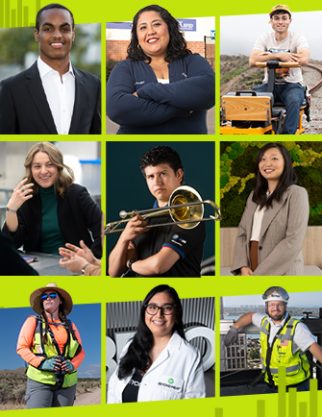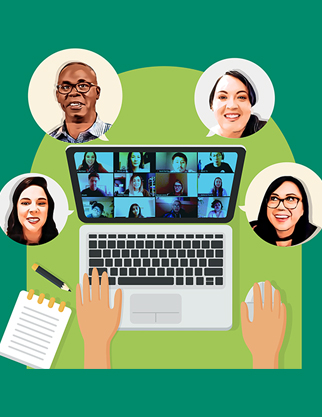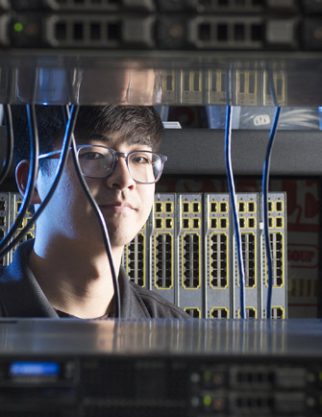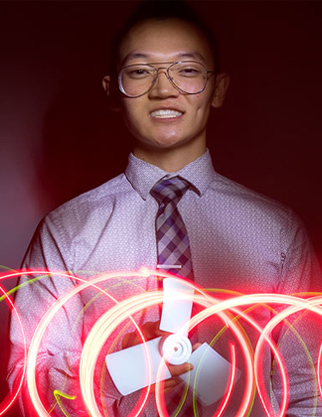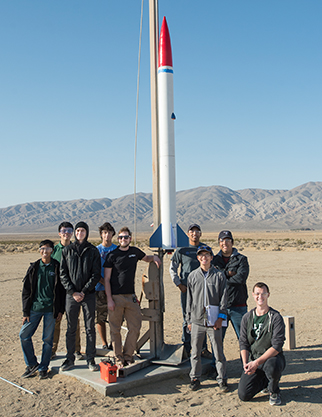The National Science Foundation CyberCorps Scholarships for Service program prepares students pursuing a cyber security profession, providing them with industry-level knowledge and skills and are hired directly after graduation by federal and government agencies.
Crisrael Lucero (’16, computer science)
What do you do now?
“I do research and development for the Department of the Navy, and right now I do mostly human artificial intelligence collaborative systems. A lot of what I do helps cyber security teams do their job better, make them more aware of network security and make better decisions.”
When did you become interested in cyber security?
“In high school, I wanted to play a video game and in order to access one of the modifications for the game I had to hack components of my wireless router. I went into my router and made a bunch of modifications so I can bypass some of the security of the video game, and I was inspired.
I also took an elective technology lab as a freshman in high school. It taught me a lot about computers, including web and video game development, and using software like Photoshop. I also learned about computers in society and data breaches. It made me realize this is a lot bigger than just playing video games and building computers from parts – it was a new phase for the internet.”
How did your Cal Poly Pomona education and experiences help you?
“Cal Poly Pomona was really great in teaching me a lot of applicable skills. I had a really good group of friends when I was at Cal Poly Pomona because I was the president of the Computer Science Society. A lot of people in my circle were really motivated and ambitious. We had a lot of interview practices every day and I had a lot of good interviewing mentors, which helped me get the job I have now.”
How did Scholarship for Service support your education?
“The program offered a lot of things, including paying for certifications, flying out to career fairs and getting connected with agencies I’ve never heard of before. I didn’t know about the place I work at now until I joined Scholarship for Service. I went to a job fair in Washington D.C. where I met several agencies and was able to put my foot in the door and have personal contacts with these agencies.”
Samantha Wu (’17, computer science)
What do you do now?
“I work at Mitre, a nonprofit that does research across science in general, including cyber security. I primarily work with cell phones, cellular networks and reverse engineering.”
When did you become interested in cyber security?
“As a kid in elementary school, I used to play a lot of multi-player online games. My friend Googled hacking and got on a phishing website that asked for a username and password. She naively gave it to them and ended up having her password changed and losing her account. I had another friend that went through that exact process and instead, hacked the game. I was really interested in learning what went behind that, on an advanced scale in terms of cyber security.”
How did your Cal Poly Pomona education and experiences help you?
“I took an application development elective at Cal Poly Pomona that I thought I wouldn’t use it because I wasn’t going to develop applications. It ended up helping because in my current job they’ve been wanting to build an app for testing, but they didn’t have anyone there to build an app since the work they did wasn’t in app development. When I came in, I was the one that built that app for testing.”
How did Scholarship for Service support your education?
“Through Scholarship for Service, I attended workshops that gave me more general knowledge and put me touch with the actual company I work for. The scholarship itself paid for my tuition and provided a stipend that went toward books and programs that were related to cyber security. I was able to attend a training program and conferences that I probably wouldn’t be able to go to otherwise.”
Alex Segal (’15, computer science)
What do you do now?
“I am the director of security at SentiLink, a private company that develops technology that detects and blocks fake identities where the name, date of birth and social security number doesn’t correspond to a single, real person.”
When did you become interested in cyber security?
“In my junior year at Cal Poly Pomona, I went to a meeting for SWIFT on campus, and there was a Raytheon representative giving a presentation on information security. There were laptops out and I set up two virtual machines – one running a meta display and one running an old, insecure windows server. Then I ran a program that allowed me to gain remote access into the vulnerable server – I was instantly hooked, and I thought it was super cool.”
How did your Cal Poly Pomona education and experiences help you?
“When I started at Cal Poly Pomona, I thought I was going to get my computer science degree and become an intellectual property lawyer. Around my junior year, I started thinking maybe I don’t want to do more school, and when I was at the Raytheon presentation, I decided that cyber security was what I wanted to do instead of law school.
At the same time, Mohammad Husain, a research professor for cyber security, mentored me to develop innovative ideas to move the industry forward. I presented my undergraduate research at a conference, and I met the director of security and operations at Tinder. He was the one who hired me right after I graduated. From Tinder, I worked at Apple after being asked by a recruiter if I wanted to do GDPR (general data protection regulation) there.
Dr. Husain was absolutely integral in my development, especially in the direction and support he provided in my education and my personal life. Everything from encouraging me to find my own project to encouraging me to work beyond what was accomplished. The Poly Sec group was composed of a lot of the smartest kids in the program, and we all would work together to advance our knowledge.
How did Scholarship for Service support your education?
Scholarship for Service gives you the ability to serve your country and the ability to view and participate in classified research. That’s the type of thing to work on if you want the work to matter, and that’s what should matter to you – that’s what matters to me.
